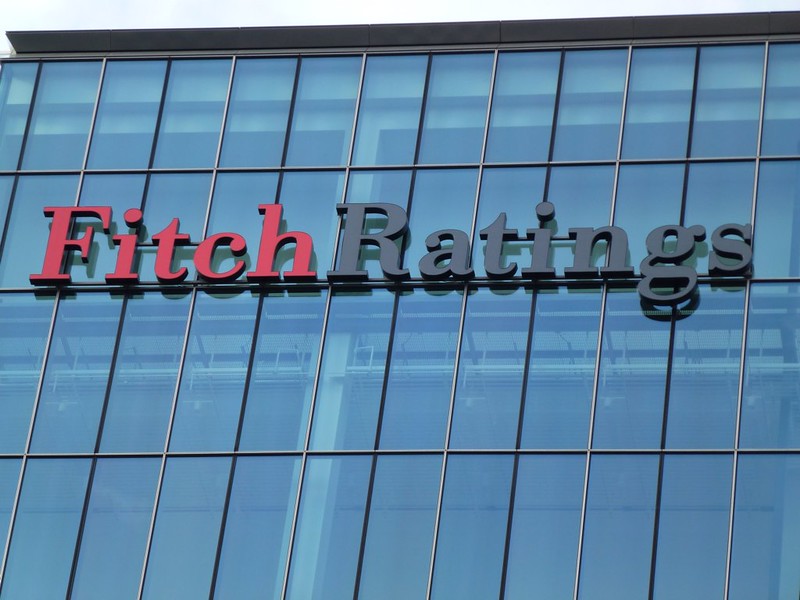Africa
Fitch Agency Worsens Outlook for Angola’s Economic Evolution
Fitch Ratings also announced that it has decided to maintain the sovereign credit quality assessment at the current level. On the public debt ratio, which is strongly linked to the evolution of the currency, Fitch Ratings predicts that Angola will miss targets, reaching the end of this one with a debt of 78.9% of GDP, growing from the 65.2% recorded in 2022.

“The revision of Angola’s outlook from Positive to Stable reflects forecasts of lower economic growth, higher inflation, and an increase in the debt to Gross Domestic Product (GDP) ratio as a result of the sharp depreciation of the kwanza,” reads the note that also explains the decision to keep the rating at B-.
Fitch Ratings has reduced its growth forecast to 1.5% of GDP this year and 2% next year, compared to 3.1% in 2022, and also estimates that inflation will rise from 14.7% at the end of this year to 17.1% in 2024 when until now it had predicted that next year prices would grow by single digits.
“Weaker economic growth reflects lower oil production vis-à-vis 2022, which we forecast will decline to an average of 1.09 million barrels per day this year and next, down from 1.14 million barrels per day last year,” Fitch explained.
In the note, the analysts also estimate that the kwanza, which lost 30% of its value against the dollar in the first half, will be worth 760 kwanzas per dollar by the end of the year, compared to 504 kwanzas per dollar at the end of 2022, “but a greater depreciation is possible if domestic supply remains limited,” they warned.
Fitch Ratings also announced that it has decided to maintain Angola’s sovereign credit quality assessment at the current level
On the public debt ratio, which is strongly linked to the evolution of the currency, Fitch Ratings predicts that Angola will miss targets, reaching the end of this one with a debt of 78.9% of GDP, growing from the 65.2% recorded in 2022.
“This mainly reflects the devaluation of the kwanza, as 71% of the total debt volume is denominated in foreign currency,” they explain, predicting that strong nominal GDP growth next year will support a decline in the ratio to 69.9% in 2024.
“This contrasts with our previous forecast of a decline in the debt trajectory to 58% and 54.5% in 2023 and 2024,” they pointed out.
In addition to downgrading the forecast for the evolution of the economy to Stable, meaning that Angola is not expected to see an improvement in the rating over the next 12 to 18 months, remaining at B-, i.e. below the investment recommendation, Fitch Ratings also announced that it has decided to maintain the sovereign credit quality assessment at the current level: B- for foreign currency issues, and B- for local currency issues.
“Maintaining the rating balances a set of weak governance indicators, high inflation, and one of the highest levels of dependence on raw materials among the countries analyzed by Fitch, with a higher level of foreign reserves relative to peers and manageable risks on debt payments due to favorable oil prices, which we anticipate to be $80 and $75 this and next year,” the analysts concluded.
__
(Featured image by Gideon Benari CC BY 2.0 via Flickr)
DISCLAIMER: This article was written by a third party contributor and does not reflect the opinion of Born2Invest, its management, staff or its associates. Please review our disclaimer for more information.
This article may include forward-looking statements. These forward-looking statements generally are identified by the words “believe,” “project,” “estimate,” “become,” “plan,” “will,” and similar expressions. These forward-looking statements involve known and unknown risks as well as uncertainties, including those discussed in the following cautionary statements and elsewhere in this article and on this site. Although the Company may believe that its expectations are based on reasonable assumptions, the actual results that the Company may achieve may differ materially from any forward-looking statements, which reflect the opinions of the management of the Company only as of the date hereof. Additionally, please make sure to read these important disclosures.
First published in Africa 21 Digital, a third-party contributor translated and adapted the article from the original. In case of discrepancy, the original will prevail.
Although we made reasonable efforts to provide accurate translations, some parts may be incorrect. Born2Invest assumes no responsibility for errors, omissions or ambiguities in the translations provided on this website. Any person or entity relying on translated content does so at their own risk. Born2Invest is not responsible for losses caused by such reliance on the accuracy or reliability of translated information. If you wish to report an error or inaccuracy in the translation, we encourage you to contact us.

-

 Africa7 days ago
Africa7 days agoCôte d’Ivoire Unveils Ambitious Plan to Triple Oil Output and Double Gas Production by 2030
-

 Biotech2 weeks ago
Biotech2 weeks agoGalicia Becomes First in Spain to Approve Gene Therapy for Hemophilia B
-

 Business4 days ago
Business4 days agoThe TopRanked.io Weekly Digest: What’s Hot in Affiliate Marketing [NordVPN Affiliate Program Review]
-

 Fintech2 weeks ago
Fintech2 weeks agoBitget Secures Operational License in Georgia, Strengthening Its Eastern Expansion





















